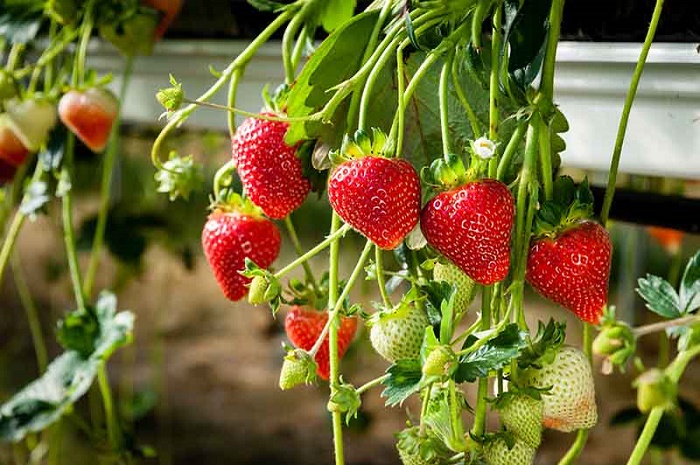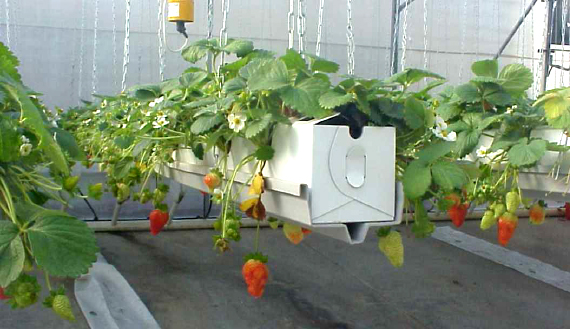
The time of strawberries is here and consumers are waiting impatiently for one of the most desired fruits. Strawberries are consumed in the world in many ways, in jams or jams as well as in nature. They are part of many desserts, from classic strawberries with cream, to all kinds of cakes and pies. In this article, we will present how to grow hydroponic strawberries?
Its characteristic taste almost everyone likes. Candy lovers will choose the tastiest strawberries to which they can add a little sugar to enhance their flavor and those who love the citric acid dot will also appreciate that of the strawberries. In addition, they are very rich in vitamins and provide very few calories. Continue reading: How to grow grapes in your backyard
How to grow hydroponic strawberries?
The hydroponic cultivation of strawberries is already a reality in the world. You can still advance much more in this field. The great greenhouses for strawberries that exist in many areas of our country could increase their production incorporating techniques of hydroponic agriculture.

But in addition, they could start to grow hydroponic strawberries in areas where until now it was not usual to find them. This will allow us to diversify the crops of each area and open new markets.
For the consumer, it can mean fresh products, close to the point of sale and perhaps cheaper, but without cutting back on the producer’s profits, rather the opposite. The investment to carry out the crops of this type would be quickly amortized.
Hydroponic crops are especially ecological, since they do not need large areas of land to work and also because of their characteristics, they do not need many of the pesticides and treatments required by traditional crops.
But the hydroponic cultivation of strawberries is not only an ecological and profitable reality for producers who want to market their products. It is also a good alternative for an orchard at home.
Having a strawberry harvest is not that difficult and does not need too much space. A balcony or perhaps a small patio that is not used practically. It can be enough to make a hydroponic installation that allows cultivating not only this delicious fruit. Also, some vegetables are used daily in the kitchen and even aromatic herbs.
Hydroponics system and its characteristics
The hydroponics systems are a set of techniques that do not use the soil or land to grow and take care of plantations, but in this agriculture without soil water is used. Among the characteristics of the hydroponic crop, we find that it replaces the land or soil by the use of water. It can be done with very simple structures and compile them according to the needs and that works perfectly with a variety of organic crops. Especially with plants of herbaceous type and many types of orchard plants.

It allows the plants to be cultivated both indoors and outdoors. Such as greenhouses, roofs, terraces, gardens or in areas where the soil is not fertile.
Benefits and advantages of doing a home hydroponic culture
There are several benefits and advantages that we can find in hydroponics. It should be known to know what we can obtain and why it is considered part of an organic farming system, provided that good use of water is made. Thus, the main advantages and benefits of hydroponics are:
- It is not necessary to have much space. It can be used at home and it is more economical since the land yields more and the cultivation is intensive.
- It does not depend so much on weather conditions. This allows a variety of crops throughout the year.
- It serves so that the land rests and recovers from previous crops, gaining fertility again. It is good to combine it with more traditional systems.
- It is perfect for areas where the land is worn, infertile, or there are few areas suitable for agriculture.
- It is more difficult for plants to have pests, diseases and, in addition, there can be no weeds.
- It ensures constant adequate humidity.
- The risk of water-logging of the roots is reduced since water is graded. It allows the entire root zone to be irrigated evenly.
- It greatly improves the quality and quantity of the production.
- Water waste is avoided because it is rationed and reused.





